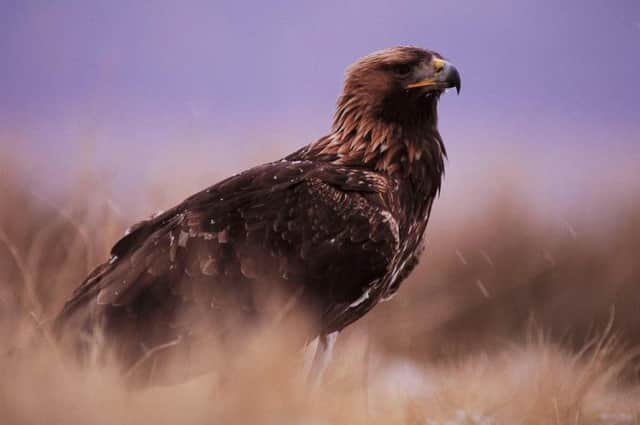Killer drug threat to Scotland’s golden eagles


Veterinary diclofenac, an anti-inflammatory treatment for livestock, has been linked to the poisoning and rapid decline of the once common Gyps vultures on the Indian subcontinent.
It was found the birds were eating the carcases of recently treated animals then dying of kidney failure. Numbers plummeted by 97 per cent between 1992 and 2007.
Advertisement
Hide AdAdvertisement
Hide AdThe medicine for animal use was outlawed by India in 2006, followed by Nepal, Pakistan and most recently in Bangladesh.
However, conservationists fear Europe’s birds of prey could face the same fate after the drug was authorised for manufacture and use in Italy and Spain – and could then be exported unchecked throughout the European Union.
And just months after it was licensed for use in Europe, two new studies showed a greater diversity of birds of prey, including some eagles, are more susceptible to its effects than previously thought.
Campaigners hope to reverse the decision in a bid to protect bird numbers. The introduction of the potentially dangerous drug follows a recent spate of raptor poisonings in Scotland.
More than 20 birds of prey in northern Scotland have been killed, with one poisoning incident in Ross-shire seeing the loss of 16 red kites and six buzzards.
A paper published in the journal Bird Conservation International revealed two steppe eagles found dead at a cattle carcase dump in Rajasthan, India had diclofenac in their tissues and had suffered kidney failure.
Conservationists argue steppe eagles are closely related to the golden eagles found in the UK, the vulnerable Spanish imperial eagle and other globally vulnerable or declining Eurasian eagles.
RSPB conservation scientist Dr Toby Galligan said the findings “suggest that the drug is fatal to a greater number of birds of prey in Asia, Europe and around the world. This study confirms our worst fears.”
Advertisement
Hide AdAdvertisement
Hide AdIn another paper, Dr Galligan led an examination of recent population trends in Egyptian and red-headed vultures in India. That study showed similar population declines to Gyps vultures, providing indirect evidence that these species have also been impacted by diclofenac.
Dr Galligan added: “The European Commission needs to recognise this problem and impose a continent-wide ban on veterinary diclofenac before it can impact on our birds.”
Last week, the UK’s Veterinary Medicines Directorate which regulates animal medicines, weighed into the row, adding it is “taking the issue of diclofenac’s risks to vulture populations seriously”.